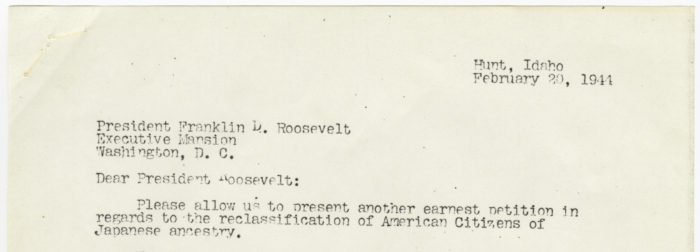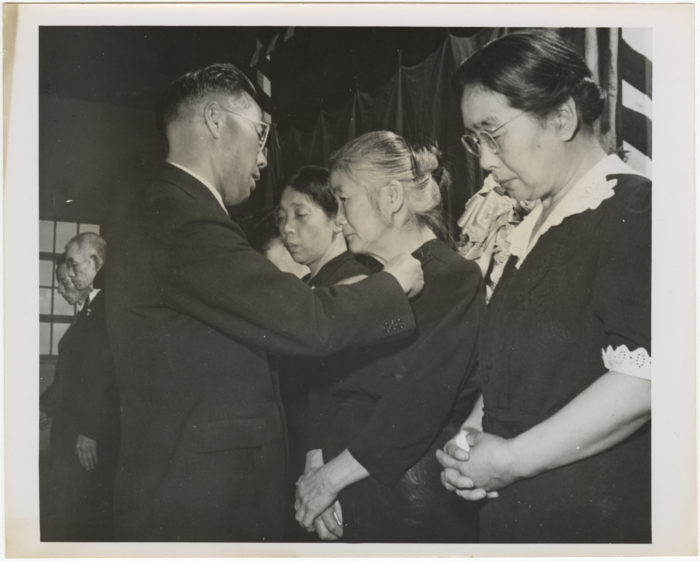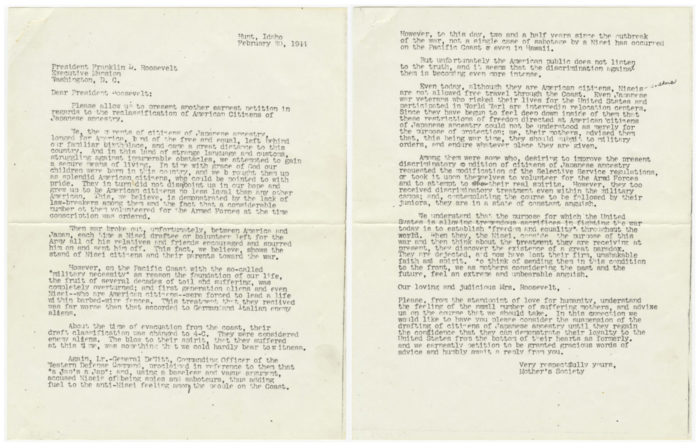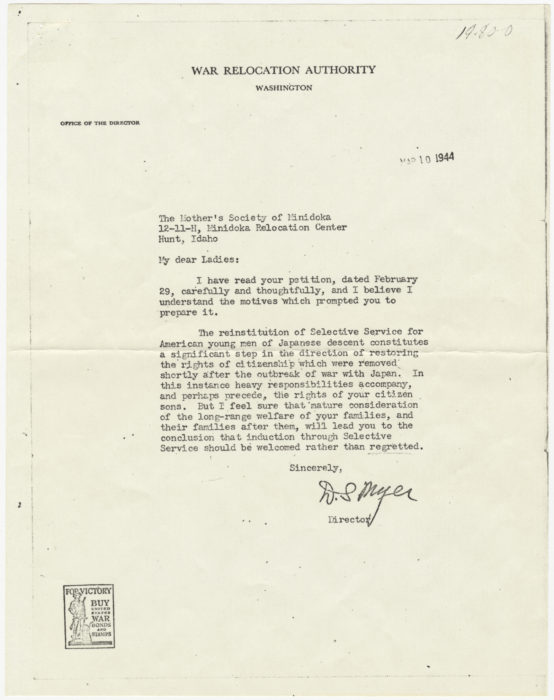Dissent2

Japanese American National Museum, Gift of the Miyaoka Family (94.55.5)
Click to open full-size image in new tab.Read this letter excerpt.
- Who is the letter being sent to?
- What do you know about the writer(s)?
- The writer(s) chose each word carefully. What might be the reasons this letter says, “American Citizens of Japanese ancestry?”
In 1944, three years after the United States entered World War II, the federal government reclassified Japanese Americans as eligible for the military draft. This meant young men living in Japanese American concentration camps and previously considered unfit for service began to be drafted to serve in racially segregated US military units. Imagine the impact this had on those who were in the camps.

Japanese American National Museum (2015.100.408a)
Click to open full-size image in new tab.Look closely at this photograph.
- What is the first thing you notice?
- How would you describe the emotions of the people in this picture?
- Why do you think everybody is so formally dressed?
- Which country do you think this is?
This is a ceremony that took place in all of America’s concentration camps. In this picture, mothers are receiving special gold star pins to signify that their sons were killed in action while fighting in World War II.

Japanese American National Museum, Gift of the Miyaoka Family (94.55.5)
Click to open full-size image in new tab.Read this letter carefully.
- What is the name of the group that wrote this letter?
- What are some reasons the members of this group don’t want their children to be drafted into the US military?
- Do you notice the small typos in this letter?
This letter was written by mothers incarcerated in Minidoka Concentration Camp in Hunt, Idaho, who were still learning English. For the first draft of the letter, they asked for help from a Japanese American lawyer but ultimately felt his draft was too weak and overly emotional. They then worked together to write this letter, which they sent to President Roosevelt.

Japanese American National Museum, Gift of the Miyaoka Family (94.55.5)
Click to open full-size image in new tab.This is one of the official responses that the Mother’s Society of Minidoka received.
- Who is this letter from?
- What is your reaction to this letter in light of the issues raised in the previous letter?
- How might the mothers have felt when they received this letter?

Japanese American National Museum, Gift of the Miyaoka Family (94.55.5)
Click to open full-size image in new tab.Sometimes, women are incorrectly thought of as passive and submissive. This letter clearly demonstrates otherwise.
These women worked together to write a thoughtful, strategic letter and send it to the most powerful person in the nation. This letter did not stop the military draft or prevent about 800 Japanese Americans from being killed during the war. However, it eloquently raised difficult questions and added women’s voices to the military draft protest.
